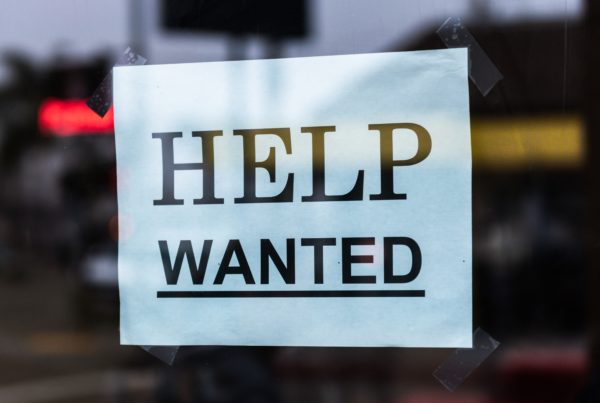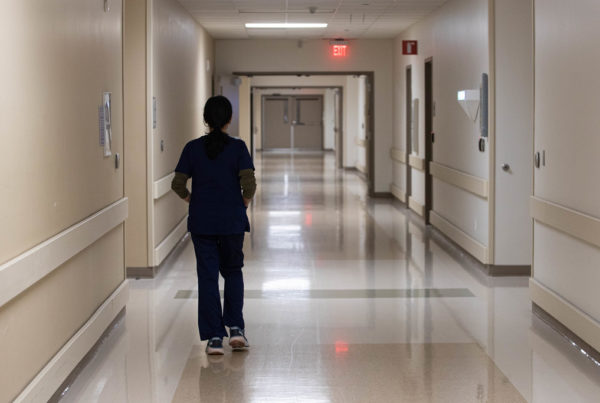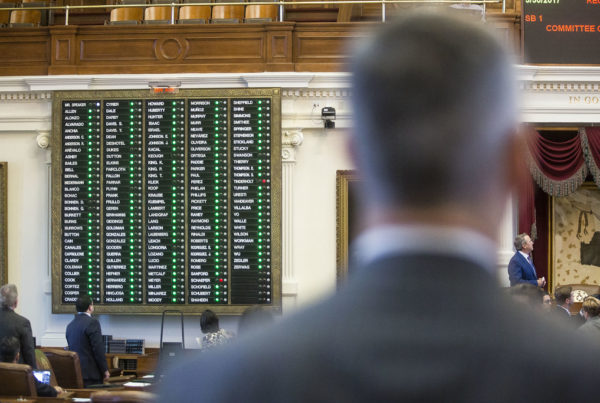Congress has taken action to avert a looming railroad strike, forcing unions to accept an agreement with rail companies and denying workers the paid sick leave that had been part of their demands.
If an agreement couldn’t be reached, a strike by the unions could have been a blow to the already-vulnerable U.S. economy, with economist Ray Perryman saying Texas was especially vulnerable. Perryman warned that the Texas economy stood to lose nearly $30 billion should a strike actually happen.
But it appears that won’t be the case, at least for now.
Raymond Robertson, director of the Mosbacher Institute for Trade, Economics and Public Policy at Texas A&M Bush School of Government and Public Service, joined the Texas Standard to talk more about the deal and what it means for the long haul. Listen to the story above or read the transcript below.
This transcript has been edited lightly for clarity:
Texas Standard: This agreement, as I understand it, includes a 24% pay increase over five years, $5,000 bonuses and voluntary assigned days off, but only one paid day off. Is this going to satisfy the union rank and file?
Raymond Robertson: It seems unlikely that they’ll be happy with this, because they’ve already voted to reject these exact agreements. So we’re really concerned about how the reaction is going to be on the part of the unions.
When you say “really concerned,” what could that mean? The strike appears to have been averted by this congressional action now.
Yes, that’s right. But the negotiations aren’t necessarily over, because there’s going to be continuing negotiations in the future. So what essentially this might be doing is setting up a potential for more strikes farther down the line.
I wonder if folks found this a bit of a surprise, given that for the first time in more than 30 years, Congress acted in a bipartisan fashion to stop a potential rail strike. What do you make of that?
Well, I think it’s good sign for Washington to be able to react quickly when it’s necessary. I think the stakes were very, very high. And I think both Republicans and Democrats were worried about both driving up inflation from future supply chain shocks, especially as we head into the holidays, but also having a very large stoppage of work right at the same time that the economy is trying to get back going.
I want to focus in on something that the House did that the Senate did not. Apparently, the House passed an additional package that would have added sick time, but the Senate rejected that additional step. What went on there, and how critical was that to this congressional action?
Well, exactly. There was a number of people on both sides of the House, actually, that were supporting the idea that we need to provide the workers what they want, which was their only getting that one personal day. As you mentioned, they don’t get days off for sick time. And that is something that was very important to the workers. And so what Congress is trying to do was put that back in. When they sent it to the Senate after having passed it, the Senate actually voted in favor of it in terms of 52 to 43 was the vote, but they needed 60 votes to pass. So it didn’t quite make it through for that second piece of legislation.
There had been a lot of concern about it, given the other factors in the economy – right now rising inflation, rising interest rates, overseas, supply chain issues among them – that we would be facing a genuine economic calamity should this go off the rails, if you’ll pardon the pun. So now, has that crisis been averted, as you see it?
Yeah, that definitely seems to be the sense, that we have averted a very significant catastrophe. We are still concerned about the conflict in Europe driving up natural gas prices and food prices. So this is one of the other things that we’ve had to dodge as we go into the holidays. But looks like, due to a bipartisan and very quick action on the part of Congress – which, as you said, was unusual but very pleasant – we avoided it.
We haven’t touched on the political dimensions here. I was mentioning the other day how when Joe Biden was running for president, he declared that he wanted his administration to be the most pro-union in history. This doesn’t exactly run in that direction, I think. Given that he brought congressional leaders together earlier this week and cajoled them into quick action on this bill, what do you think the political fallout is going to be here?
I think it’s a fascinating question because you had Bernie Sanders and Elizabeth Warren both raising objections about this bill, along with Ted Cruz and Marco Rubio, who are on opposite sides of the political spectrum. And they are both saying that the president did not do as much as he could to support the actual concerns of workers. Now, at the same time, I think the center of Congress, both in the House and the Senate, were very interested in just averting the catastrophe and giving us more time to try and work out a deal. And I think that’s what ended up carrying the day at the end.
Strange bedfellows, professor – I mean, Ted Cruz, Bernie Sanders. Let’s focus on the Texas factor here: What accounts for Ted Cruz’s decision to vote yes?
Yeah, I think that’s a very interesting question, especially because in the public statements, they said they are definitely on the side of workers on this issue. But at the same time, it doesn’t do Ted Cruz any good to support what the president wants to do. So this also gave the chance for him to be raising some opposition to the president while at the same time appeal to a broader base.















